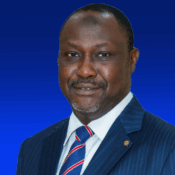
DR Congo: After turning themselves in to M23, European mercenaries take a plane to Romania
The Congolese government army (FARDC) was joined in combat by 288 European mercenaries, who were sent back to Romania.
Following their loss and surrender, the mercenaries hired by the Congolese government to combat M23 insurgents departed Kigali International Airport on Saturday, February 1.
After being disarmed in Goma, the eastern DR Congo city taken by M23 rebels earlier this week, the group landed in Rubavu District, which borders DR Congo, on January 29.
In order to be flown to their nation, they were granted free transit via Rwanda.
In anticipation of their journey to home nation, the delegation was driven straight to Kigali International Airport on Tuesday. Since they were taken to Kigali, it is unclear if they have been at the airport.
Alongside the Congolese army (FARDC), the mercenaries were engaged in combat alongside forces from Burundi, the Southern African regional bloc, and the murderous FDLR, among other rebels.
The Kinshasa administration is thought to have paid thousands of euros to up to 2000 mercenaries during its conflict with the M23 rebels.
According to a recent BBC investigation, each mercenary was making at least $5,000 a month, but a Congolese soldier is said to make less than $100 during the same time frame.
M23 military leader Col. Willy Ngoma gave them a speech at La Corniche One Stop Border Post before they were turned over to Rwandan authorities. He warned them against engaging in “adventurous” activities in the nation and stated that the rebel organization was fighting for the future and dignity of the Congolese people.
After the mercenaries were defeated and Goma fell, they escaped to the MONUSCO facility, where they were guarded by UN forces. Their governments then asked Rwanda to let them evacuate through Kigali.
According to Foreign Affairs Minister Olivier Nduhungirehe, Rwanda was the only nation in the world to raise concerns about Congolese President Félix Tshisekedi’s hiring and employment of European mercenaries, which was a flagrant breach of both a 1979 OAU Convention and a 1989 UN Convention.
Following a number of concerns, the Congolese government referred to the Europeans working with FARDC as “consultants.”
According to Nduhungirehe, “the outsourcing of this war by the government of Kinshasa to these ‘barbouzes’ was never condemned by the UN Security Council, the European Union, or even the countries of origin of these mercenaries.”
All Categories
Recent Posts
Tags
+13162306000
zoneyetu@yahoo.com



